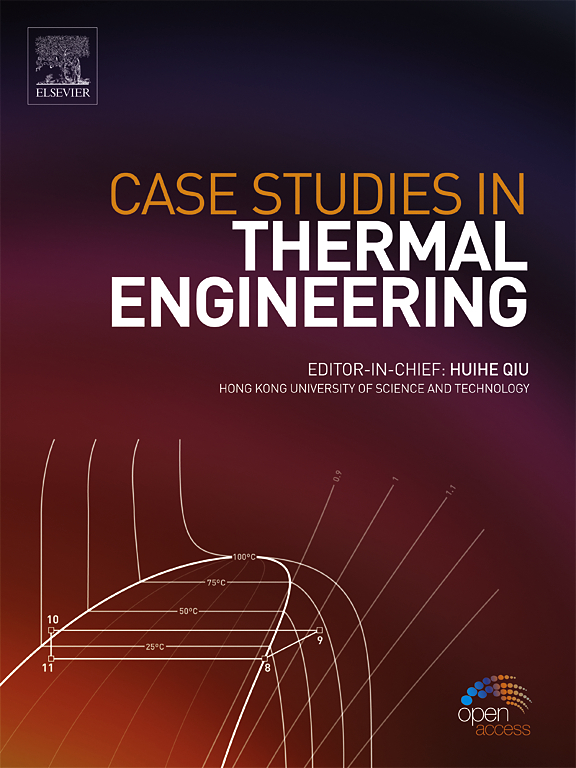利用 CFD 代码建立大直径管道中绝热气水流的局部两组气泡大小模型
IF 6.4
2区 工程技术
Q1 THERMODYNAMICS
引用次数: 0
摘要
准确预测大直径管道中的气泡行为对于评估核系统中安全系统、蒸汽发生器和热交换器的性能至关重要。两相流条件下大直径管道中的气泡行为与小管道中的气泡行为有很大不同。随着计算流体动力学(CFD)代码使用的日益广泛,预测界面面积浓度(IAC)对于理解多维气泡行为至关重要。本研究针对绝热条件下的气泡流、蛞蝓流和搅动流开发了两组局部气泡大小模型。该模型包括两组气泡的空隙率和气泡尺寸的相关性,这些相关性被应用到 CFD 代码中,并根据低压气水流大直径管道的实验数据进行了验证。结果表明,该模型的预测精度超过了现有的相关系数。所开发的相关性适用于各种流动条件,包括 0.05-0.152 米的管道直径、从大气压到 300 千帕的压力、从 0.25 米/秒到 2.85 米/秒的表层液体速度以及从 0.04 米/秒到 5.48 米/秒的表层气体速度。该模型有望提高 CFD 代码对大直径管道中绝热两组两相流的预测能力。本文章由计算机程序翻译,如有差异,请以英文原文为准。
Local two-group bubble size model for adiabatic air–water flow in a large diameter pipe using CFD code
Accurate prediction of bubble behavior in large diameter pipes is crucial for evaluating the performance of safety systems, steam generators, and heat exchangers in nuclear systems. Bubble behavior in large diameter pipes under two-phase flow significantly differs from that in small pipes. With the increasing use of computational fluid dynamics (CFD) codes, predicting interfacial area concentration (IAC) is critical for understanding multi-dimensional bubble behavior. This study developed a two-group local bubble size model for bubbly, slug, and churn flows under adiabatic conditions. The model includes correlations for void fraction and bubble sizes of two groups, which were implemented into CFD codes and validated against experimental data from large diameter pipes with low-pressure air–water flow. Results show the model's prediction accuracy surpasses existing correlations. The developed correlations are applicable across a range of flow conditions covering pipe diameters in the range 0.05–0.152 m , pressures from atmospheric to 300 kPa, superficial liquid velocities from 0.25 m/s to 2.85 m/s, and superficial gas velocities from 0.04 m/s to 5.48 m/s. The model is expected to enhance the prediction capabilities of CFD codes for the adiabatic two-group two-phase flows in the large diameter pipes.
求助全文
通过发布文献求助,成功后即可免费获取论文全文。
去求助
来源期刊

Case Studies in Thermal Engineering
Chemical Engineering-Fluid Flow and Transfer Processes
CiteScore
8.60
自引率
11.80%
发文量
812
审稿时长
76 days
期刊介绍:
Case Studies in Thermal Engineering provides a forum for the rapid publication of short, structured Case Studies in Thermal Engineering and related Short Communications. It provides an essential compendium of case studies for researchers and practitioners in the field of thermal engineering and others who are interested in aspects of thermal engineering cases that could affect other engineering processes. The journal not only publishes new and novel case studies, but also provides a forum for the publication of high quality descriptions of classic thermal engineering problems. The scope of the journal includes case studies of thermal engineering problems in components, devices and systems using existing experimental and numerical techniques in the areas of mechanical, aerospace, chemical, medical, thermal management for electronics, heat exchangers, regeneration, solar thermal energy, thermal storage, building energy conservation, and power generation. Case studies of thermal problems in other areas will also be considered.
 求助内容:
求助内容: 应助结果提醒方式:
应助结果提醒方式:


